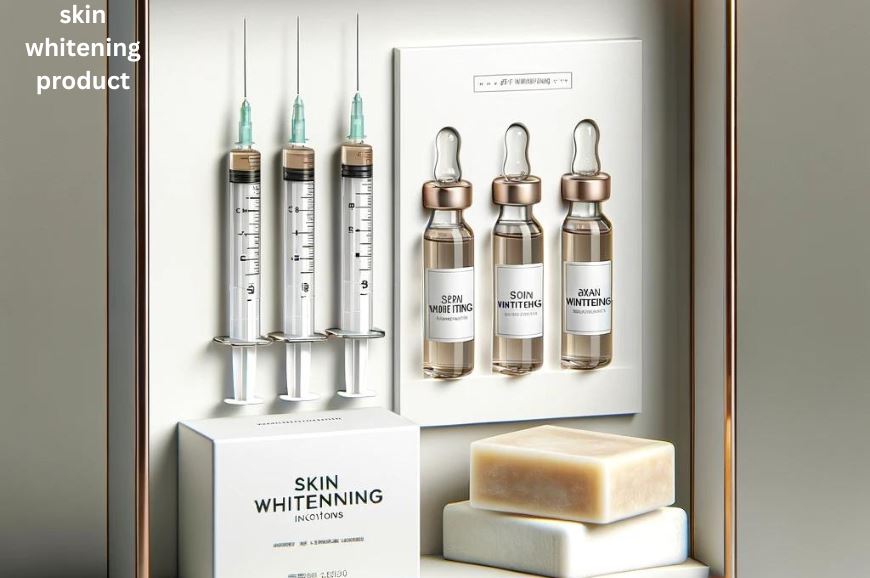
By smrutiDummy
May 02, 2024
Comparing Skin Whitening Methods Creams vs Injections vs Soaps
In the pursuit of achieving a brighter and more even skin tone, many turn to skin whitening products. Among the most popular options are skin whitening creams, injections, and soaps. Each method offers unique benefits and drawbacks. Here, we explore these methods in terms of their effectiveness, cost, and suitability for different skin types.
Pros:
- Accessibility: Skin whitening creams are widely available in drugstores and beauty shops.
- Ease of Use: These creams can be easily incorporated into daily skincare routines.
- Gradual Effect: They offer a gradual lightening effect, which may be safer for long-term use.
Cons:
- Slow Results: It can take several weeks or months before visible results are seen.
- Chemical Exposure: Some creams contain harmful chemicals like hydroquinone or mercury, which can cause skin damage with prolonged use.
Effectiveness and Cost:
Creams can be effective, particularly those containing ingredients like kojic acid or vitamin C. The cost varies widely, with some high-end products being quite expensive, though generally, they are more affordable than other methods.
Suitability:
Creams are suitable for most skin types but should be chosen carefully to avoid those with potentially harmful chemicals, especially for sensitive skin.
Pros:
- Fast Results: Injections can provide noticeable results faster than creams or soaps.
- Direct Impact: Active ingredients in the injections can work more directly and potentially more effectively.
Cons:
- Higher Risk: Injections carry risks such as infections or potential side effects from the active substances.
- Professional Administration Required: They must be administered by a healthcare professional, adding to the cost and inconvenience.
Effectiveness and Cost:
Injections, often containing glutathione, are considered highly effective. However, they are also the most expensive skin whitening method and require ongoing maintenance.
Suitability:
Best for those looking for quick results and who are under professional supervision, especially suitable for individuals without severe skin issues like eczema or psoriasis.
Skin Whitening Soaps
Pros:
- Ease of Use: Simple to use as part of a daily bathing routine.
- Exfoliating Properties: Many whitening soaps also exfoliate, removing dead skin cells and enhancing skin brightness.
Cons:
- Uneven Results: Can lead to patchy or uneven whitening.
- Harsh on Skin: Some soaps can be overly harsh, leading to dryness or irritation.
Effectiveness and Cost:
Whitening soaps are generally less effective than creams or injections but are the most cost-effective option. They can be a good introductory product for those new to skin whitening.
Suitability:
Soaps are suitable for those without sensitive skin. They're a good option for individuals looking to slightly enhance their skin tone but may not be the best for dramatic changes.
Conclusion
Choosing the right skin whitening method depends largely on personal needs, skin type, and budget. Creams offer a balance between cost and effectiveness, injections provide quick and potent results at a higher price and risk, and soaps are an economical but less effective option. Always consider the potential risks and consult with a dermatologist to choose the safest and most suitable method for your skin type and health.